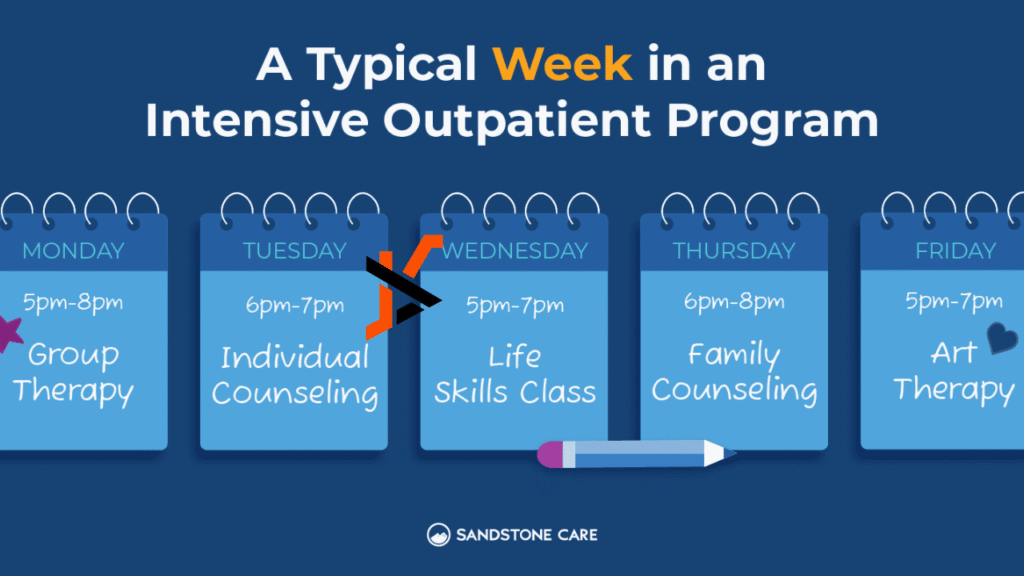Have you ever wondered what happens when someone needs structured support for mental health or addiction but does not need to stay in a facility full-time? That is where an Intensive Outpatient Program, often called an IOP, comes in. It is a level of care designed for people who need more than occasional therapy sessions but do not require around-the-clock supervision.
Understanding what this type of program involves can help you see why it works for so many people. It blends structured treatment with flexibility, giving participants the tools and guidance they need while allowing them to live at home and keep up with parts of their daily routine.
How an Intensive Outpatient Program Works
A Legacy Healing Center IOP Program is built to provide several hours of structured treatment each week. Most programs meet multiple days, often three to five, with each session lasting a few hours. The goal is to create a balance between consistent care and personal independence.
Unlike residential programs, participants do not live at a treatment center. Instead, they attend scheduled sessions and then return home. This setup allows them to continue working, attending school, or taking care of their families while still receiving support.
The schedule typically includes a mix of therapy formats. This may involve group counseling, individual therapy, educational workshops, and sometimes family therapy. The variety helps people address different areas of their recovery, from learning new coping skills to improving communication and rebuilding relationships.
Who Benefits From an IOP?
An Intensive Outpatient Program is not the right fit for everyone, but it can be highly effective for those in certain situations. It is often recommended for people who:
- Need more structure than weekly therapy – Those who need consistent guidance and a higher level of accountability.
- Are stepping down from inpatient care – People transitioning from a residential program often use IOPs as a bridge back to everyday life.
- Can manage basic responsibilities – Participants need to be stable enough to live independently and manage daily obligations.
- Are motivated to stay engaged – Success relies on consistent participation and willingness to apply what is learned in treatment.
- Need ongoing support for mental health – Many programs support individuals dealing with anxiety, depression, or other conditions.
- Are working toward long-term recovery from addiction – Structured therapy and relapse prevention tools are key parts of many IOPs.
These programs are designed to meet individuals where they are in their recovery journey, offering a level of care that bridges the gap between occasional counseling and full residential treatment.
What to Expect During Sessions
The specific structure of an IOP can vary, but most share common elements. Sessions are usually a combination of education, discussion, and practice. Group therapy is often central because it allows participants to share experiences, learn from others, and develop communication skills in a supportive environment.
Individual therapy is typically included as well. These one-on-one sessions focus on personal challenges, progress, and specific goals. Educational workshops cover topics like stress management, healthy coping mechanisms, relapse prevention, and the effects of mental health or substance use on overall wellness.
Family involvement is sometimes part of the program too. This can help repair strained relationships and teach loved ones how to provide healthy support without enabling harmful behaviors.
The Benefits of Choosing an IOP
For many, an IOP is the right fit because it provides the structure and guidance needed without requiring a complete break from daily life. The benefits often include:
- Flexibility to maintain responsibilities – Participants can keep up with work, school, or family commitments.
- Strong support network – Group settings create a sense of community and understanding.
- Focused skill-building – Practical tools for managing triggers, stress, and emotional challenges.
- Smooth transition from higher levels of care – Ideal for those leaving residential programs but still needing structured support.
- Cost-effectiveness – Typically less expensive than full-time residential treatment while still offering intensive services.
- Personalized care plans – Many programs tailor sessions to individual needs, ensuring each person works toward specific goals.
These benefits make IOPs appealing to people who are ready to build stability but still need significant help to get there.
How Long Does an IOP Last?
The length of time someone spends in an Intensive Outpatient Program depends on their needs and progress. Some people complete the program in a few weeks, while others may stay for several months. Most programs are designed to be flexible, adjusting the schedule and duration as participants reach milestones or need additional support.
Typically, the time commitment starts at a higher intensity and gradually reduces as individuals gain confidence and independence. The gradual transition helps prevent relapse and prepares people for ongoing care, which often includes regular therapy or support groups even after the program ends.
Is It the Right Choice?
Deciding if an IOP is appropriate depends on several factors. Those considering it should think about their level of stability, support at home, and ability to commit to the program schedule. It is also important to understand that progress depends heavily on participation. Being open to learning, practicing new skills, and staying consistent with attendance can make a significant difference.
For individuals who feel they need structured help but are not in crisis, an IOP often provides the balance they need. It can be a powerful step toward lasting recovery and better mental health.
Taking the First Step
Taking the first step toward treatment can feel uncertain, but understanding what an Intensive Outpatient Program offers makes the path clearer. These programs provide a middle ground between casual therapy and full-time residential care, creating structure while leaving room for daily life. With dedicated participation, many people find that an IOP helps them gain stability, build resilience, and continue moving forward toward a healthier future.

